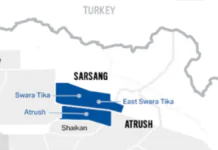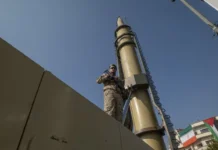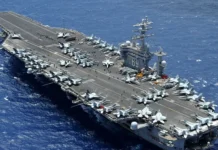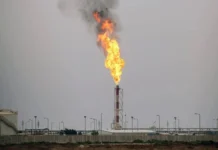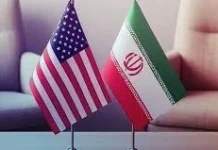Tishwash: How did a Gulf nation barely bigger than Nagaland build the world’s most powerful currency?
Despite its modest size, Kuwait boasts the world’s most valuable currency, the Kuwaiti Dinar (KWD), with an exchange rate of approximately 1 KWD = 3.26 USD.
1. Kuwait: A Tiny Powerhouse
Kuwait, a small nation of approximately 5 million people, occupies just 17,818 square kilometres, slightly larger than India’s Nagaland. Despite its modest size, Kuwait boasts the world’s most valuable currency, the Kuwaiti Dinar (KWD), with an exchange rate of approximately 1 KWD = 3.26 USD. Its compact geography and strategic Gulf location allow it to efficiently manage infrastructure and economic policies that reinforce its currency strength.
The Oil Wealth Advantage
Kuwait’s economic strength stems from its vast oil reserves, ranking among the top globally. The country has a crude oil production capacity of 3.2 million barrels per day. Oil exports constitute a significant portion of its GDP, contributing to a nominal GDP of $160 billion. This concentrated resource wealth provides a continuous inflow of foreign currency, supporting both the dinar and government spending.
Strategic Currency Pegging
The Kuwaiti Dinar’s high value is maintained through a strategic peg to a basket of international currencies, rather than a single currency like the US Dollar. This approach allows Kuwait to manage its currency’s value more effectively, insulating it from fluctuations in any single foreign currency. The peg also provides predictability for trade, investment, and international contracts.
Fiscal Discipline and Sovereign Wealth Fund
Kuwait’s government exercises fiscal discipline, with a low unemployment rate and moderate inflation. The country also manages a substantial sovereign wealth fund, the Kuwait Investment Authority, which invests globally, further bolstering its economic stability. These investments act as a buffer against oil market volatility and enhance the long-term strength of the dinar.
Limited Domestic Market
With a population of just over 5 million, Kuwait’s domestic market is limited. However, this constraint is offset by its strategic location and strong trade relations, particularly in the oil sector, which drive economic growth and support the high value of its currency. The government also leverages free trade zones and international partnerships to expand its economic reach beyond domestic consumption.
High GDP Per Capita
Kuwait’s GDP per capita stands at approximately $32,000 (nominal) and $51,000 (purchasing power parity). These figures place Kuwait among the wealthiest nations globally, reflecting its economic prosperity and the strength of its currency. High per capita income allows for significant domestic savings and investment, which further stabilises the dinar.
Political Stability Amid Challenges
Despite facing political challenges, including parliamentary dissolutions, Kuwait maintains a relatively stable political environment compared to many of its regional counterparts. This stability contributes to investor confidence and supports the strength of the Kuwaiti Dinar. Strong institutions and consistent regulatory frameworks also encourage foreign capital inflows.
Diversification Efforts
Recognising the volatility of oil prices, Kuwait is actively pursuing economic diversification. Investments in sectors such as finance, real estate, and infrastructure aim to reduce dependency on oil revenues and ensure long-term economic stability. These initiatives also create employment opportunities and stimulate private-sector growth.
Kuwait’s economic strength and strategic location enhance its influence in the Middle East. It plays a significant role in regional organisations and maintains strong diplomatic relations, further supporting the value of its currency. The country’s reputation for stability makes it a hub for regional banking, finance, and investment.
Comparison with India
In contrast, India’s currency, the Indian Rupee (INR), is valued at approximately 1 USD = 87.9 INR in 2025. Factors such as a large population, trade deficits, and inflation contribute to the lower value of the INR compared to the Kuwaiti Dinar. While India’s economy is rapidly growing, structural challenges and fiscal pressures limit the rupee’s global strength. Kuwait’s rise to having the world’s most powerful currency is a testament to the effective management of its oil wealth, strategic fiscal policies, and efforts towards economic diversification. link
************
Tishwash: Baghdad confirms its commitment to the economic and financial reform program
Prime Minister Saleh Mahoud Salman’s advisor confirmed on Friday that the government is continuing to implement comprehensive strategic banking reforms, noting that the government is committed to continuing to implement the economic and financial reform program.
Mahoud said in a speech he delivered during his participation as a government representative in the banking reform conference organized by the Central Bank of Iraq in cooperation with the international consulting firm (Oliver and Ayman) at the Ritz Carlton Hotel in Washington, DC, on the sidelines of the meetings of the International Monetary Fund and the World Bank: “The government is committed to continuing to implement the economic and financial reform program aimed at enhancing the efficiency of the banking system and supporting sustainable development in the country.”
He stressed that “the banking sector represents a fundamental pillar in the economic reform process,” indicating that “the government is continuing to implement comprehensive strategic banking reforms in cooperation with the Central Bank of Iraq, aimed at raising banking standards and enhancing the competitiveness of the financial system.”
He explained that “the government has prepared a three-year general budget for the first time, which allows for long-term financial planning, achieving stability in resource management, and enhancing the confidence of local and international investors.”
In the context of diversifying revenues and reducing dependence on oil, he explained that “the government has achieved tangible progress in automating the customs system by implementing the United Nations (ASYCUDA) system, which has led to a clear increase in customs revenues in addition to a significant improvement in tax revenues”
Noting that “the government has implemented a program to restructure government banks (Al-Rafidain, Al-Rasheed, Industrial, and Agricultural) in cooperation with international consulting companies, With the aim of raising its efficiency and enhancing its ability to provide modern financial services.
He pointed out that “the government launched programs to expand the use of electronic payment and partnerships with financial technology companies, which contributed to raising the financial inclusion rate to more than 40% after it was less than 10% two years ago, which was praised by the World Bank and the International Monetary Fund,” stressing “the government’s support for small and medium enterprises by providing financing and resources to create new job opportunities and stimulate the local economy.”
Salman stated that “the banking reforms currently being worked on constitute a turning point in the history of Iraq’s economic development, and that the government is determined to support all local and international institutions working to develop the banking sector, as it is a pivotal part of the economic growth and financial stability plan.”
He noted that “the government extended its appreciation to the Central Bank, banks, and international and local advisory teams working in this field”. link
************
Tishwash: Al-Sudani: We have achieved many accomplishments in less than 3 years and we aspire to more
Prime Minister Mohammed Shia Al-Sudani confirmed today, Wednesday, that his government has achieved many accomplishments in less than 3 years, pointing out that workers in the private sector are included in residential lands, in addition to granting them loans from banks.
The Prime Minister’s media office said in a statement, received by Mail, that “Al-Sudani received a number of tribal sheikhs and dignitaries of Al-Mada’in district, southeast of the capital, Baghdad.””.
According to the statement, Al-Sudani stressed his “keenness to meet our people from different governorates,” noting that “the security and stability that Iraq is going through today has enabled the government to move with its efforts to services, reconstruction, and development, which is a right for Iraq and its people.””.
He explained that “the country was exposed to wars and blockades, and suffered from terrorism after 2003, and this directly affected the general situation there,” stressing that “Iraq paid a heavy price in order to achieve societal stability, and to support security that was achieved with the keenness of citizens, and the efforts of our security forces that impose their control today over the entire country.””.
He added, “The government left a tangible impact on the citizen regarding what it accomplished in reconstruction and development projects throughout the country””.
The Prime Minister stressed: “In less than 3 years, we have achieved many accomplishments, and we aspire to achieve greater accomplishments.””.
He added: “There are more than 2,538 projects that have been stalled for years. We have started implementing them and launched new projects in Baghdad and the governorates.””.
He added: “We implemented infrastructure projects in the districts of Nahrawan, Al Wahda, Sabaa Al Bor and Abu Ghraib,” noting that “the service effort projects provided a quick service and reduced the cost for more than 3 million citizens in various governorates.””.
He added: “We have implemented 511 projects within the service effort projects in Baghdad and the governorates, and we are continuing to work to implement service projects.””.
Al-Sudani went on to say: “We have full knowledge of the needs of the areas on the outskirts of Baghdad, and work is underway to provide all services, and we have focused on developing and rehabilitating the entrances to the capital, Baghdad,” indicating that “the establishment of a 50-bed hospital in Al-Mada’in district will begin soon, in addition to completing Al-Nahrawan Hospital with a capacity of 200 beds.””.
He pointed out that “youth constitute (60%) of society, and we were able to provide more than 500,000 jobs in the private sector””.
He stressed that “the worker in the private sector enjoys rights and privileges thanks to the Retirement and Social Security Law”, stressing that “workers in the private sector have been included in residential lands, in addition to being granted loans from banks””.
He pointed out that “the government places the interests of Iraq and its people above all considerations, and we acted responsibly to avoid slipping into war, while maintaining our principled position on the Palestinian issue.””.
He added: “Elections are everyone’s commitment and responsibility, and broad participation in them means shaping the future of the country,” adding that “choosing the most suitable and competent means continuing reform and work to achieve more accomplishments.”” link

